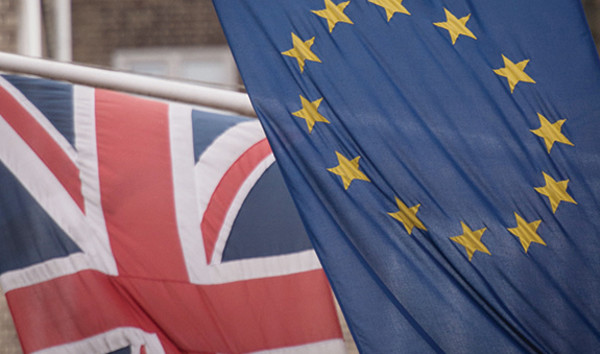

Advisers have stressed the need to reach out to their clients in a period of what could be pro-longed uncertainty following Britain’s vote to leave the European Union.
The referendum result prompted the pound to fall 7 per cent against the dollar and the FTSE 100 has fallen by more than 4 per cent this morning.
The UK’s decision to ditch the EU also resulted in the resignation of prime minister David Cameron.
But advisers have stressed the need to keep calm and stick to the plan.
Stephen Womack, director at Northampton-based David Williams IFA Chartered Financial Planners, said: “We’re facing a period of profound change. We’ve now got the uncertainty of how this exit will be managed and who will actually be calling the shots.
“Currency, stock and bond markets are going to be extremely volatile in the days to come.
“As advisers we need to be putting our arms around clients, especially those in income drawdown, and reminding them that we have seen difficult days before.
“They need to understand that the true impact of this vote won’t be measured in five days or five weeks, but in five years and even five decades.”
He added clients with high cash positions could find some good long-term buying opportunities, but said he would be very circumspect about rushing in too quickly.
Patrick Connolly, a chartered financial planner with Chase de Vere, agreed: “Markets hate uncertainty and so the result of the referendum has unsurprisingly caused a great deal of volatility in stocks and shares and currency movements, especially as markets were seemingly pricing in a ‘remain’ vote beforehand.
“When stock markets have already fallen and many people are worried, it is usually a better time to be buying rather than selling. Think back to the financial crisis of 2008. One year on from hitting its lowest point the FTSE 100 had pulled back by more than 60 per cent.”
Scott Gallacher, director of Leicestershire-based Rowley Turton, stressed the importance of reassuring clients.
He said: “No doubt some clients will be concerned about the impact of Brexit, and this is when it is crucial that we as advisers earn our keep by not hiding, and being proactive in reminding them of the long term nature of their investments.”
“Shocks such as Brexit are a timely reminder that investments always carry uncertainty and volatility. This volatility is arguably when investors actually make their money, not by clever trading but by simply sitting tight with their diversified portfolio whilst many around them panic and sell.”
Offering reassurance was something Colin Low, managing director of Suffolk-based Kingsfleet Wealth, said he had been doing at the beginning of the week.
Mr Low said he let his clients know their investments were structured strategically not tactically.
He said: “There will be downs as well as ups irrespective of political decisions.
“The market doesn’t like what could happen when it doesn’t know what will happen but underneath all of this we are investing in businesses not in countries.
“We prefer active and passive is going to have a tough time following the market up and down. There will be opportunities and companies that out-perform others and you want someone who can find them.”
Richard Ross, director of Norfolk-based Chadwicks, said he prefers passives but earlier this year introduced some active funds to protect against global volatility.
He said: “Although predominately passive we have introduced some specific actively managed funds where they can provide exposure to non-correlating assets. We have a higher than usual exposure to overseas markets where the fall in the value of the pound should compensate for some of the market volatility.
“We have introduced a UK infrastructure fund that is likely to benefit from the financial stimulus that looks more certain if we are to lessen the depth of the forthcoming Brexit recession.
“We also introduced a long-dated Gilt fund as an ultimate insurance policy that looks like being our best-performing holding.
“We took these positions at the beginning of the year to reflect what we perceived as higher global risks at a time when it appeared the referendum would be no more than a sideshow – none of those risks has gone away, the Brexit vote has simply amplified them.
“It is going to be a very difficult time ahead.”



